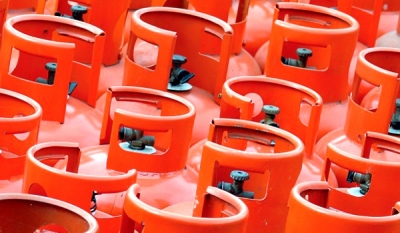The CFR Japan propane price for first-half November-delivery, was assessed Friday down a sharp $7 day on day at $714/mt, the lowest since July 9, 2012, when it hit $713/mt.
Butane dived by $95 to $726/mt, the lowest since July 3, 2012 at $725/mt, Platts data show.
The front-month Saudi Aramco Contract Price propane swap last traded in Asia at $650/mt Friday, the lowest since July 19, 2012 when it touched $662/mt.
ICE November Brent crude futures fell to an intraday low Friday of $88.11/barrel, a more than three year low, before recovering to $89.75/b.
"There are sellers asking for buyers still," one market source said.
The abundance of cargoes arriving end-October/November and early-December to Asia from the US, West Africa and Algeria -- estimated at 700,000 mt, or at least 15 cargoes -- is exacerbating the bearish sentiment, traders said.
"Physical length is still there," one North Asian trader said, adding that the Atlantic Basin and North African cargoes come on top of the normal volumes from the Middle East.
With VLGC freight rates on the Persian Gulf to Japan route falling to below $88/mt, traders and producers are cautiously bullish about moving spot Middle East cargoes to Asia, after recent difficulties making spot charters, due to record-high freight rates above $100/mt, sources said.
As the market has held in a contango structure since early August, North Asian traders said Japanese importers have been discreetly and gradually buying some cargoes over August to end-September.
"But the impact came from lower sales in Japan, so the stocks piled up unintentionally," one trader said.
On Friday the contango structure narrowed to $4/mt from $15/mt on Thursday.
HIGH JAPAN STOCKS
Japan's LPG stocks surged almost 10% month on month to 2.091 million mt at end-August, stretching an uptrend into the fourth month due to declining demand ahead of a forecast mild winter, despite imports falling, industry data showed late last month. Stocks were up 2% year on year.
The rise in overall inventories was driven by propane, up 11.7% month on month to 1.36 million mt in August, while butane rebounded from falls seen in recent months to 689,000 mt, up 6.1% month on month, the data showed.
Tokyo Electric Power Company's crude and fuel oil use for thermal power generation also fell in September due to weaker-than-expected power demand in the month, a source close to the matter said.
Japanese crude and fuel oil demand for thermal generation slid to a pre-2011 earthquake level for the first time during the July-September summer power demand season, though the country did not have any nuclear output.
Tepco did not use any LPG for power generation in September, though the utility bought 20,000 mt as planned earlier for the month, the source added.
Tepco planned to use 40,000 mt of LPG for thermal generation this month, but its actual use and purchase volume would be determined by actual power demand, the source added.
Demand from the region's petrochemical sector lent some support to the LPG market between mid-June and early September, when the spread between the Argus Far East Index propane swap and Mean of Platts Japan naphtha assessment was around the $50/mt discount level, making it economical for crackers to switch to propane or butane as an alternative to naphtha.
But the discount began narrowing since September 9, which makes propane unviable as an alternative, and with the spread flipping to a premium October 1, and hitting a $28/mt premium on Wednesday, crackers have firmly stuck to cheaper naphtha as a feedstock.
Even though the spread flipped back to a discount of $16.25/mt Friday, versus a $13.75/mt premium on Thursday, this is too narrow to revive LPG demand from the petrochemical sector.
Some traders say the start up of four propane dehydrogenation plants in China over the past year would help to absorb Atlantic Basin supplies, but others pointed out that two PDH plants have been reselling their cargoes between February and October, adding to regional supplies.
Though such re-offers of term cargoes have not yet been seen again so far, concern over a glut in propylene, leading to falling prices and narrowing margins -- especially when two more PDH plants start next year -- could force the plants to limit production rates, sources said.
Singapore (Platts)






















